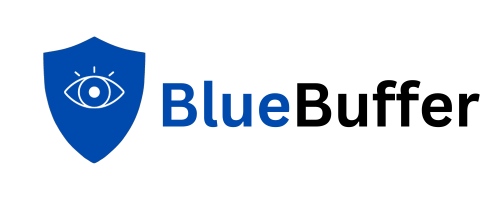Blue Light has become an increasingly popular topic of discussion as it relates to sleep duration and quality in the scientific world. This 2020 article from the Harvard Medical School summarizes many of the findings of Blue Light exposure on sleep and your circadian rhythm. But first, we’ll break down what all this means and how this affects you.
What is Blue Light?
Blue Light is the shortest and highest energy wavelength light visible by the human eye (380 - 500 nanometer range). The sun is the largest emitter of Blue Light in our daily lives, but computers, tablets, and smart phones all emit Blue Light as well.
What is your circadian rhythm?
Your circadian rhythm as it relates to sleep is a 24-hour cycle optimized for your conscious (awake) and unconscious (asleep) hours. External factors like sunlight and darkness play a role in your body’s hormone production (like melatonin, the hormone that makes you sleepy), telling you when to be active and when it’s time for restorative sleep. Think of it as your body’s “biological clock”.
When your biological clock is aligned with the sun, you’re sleeping better and have more energy in the day, but if it’s off it can lead to issues.
How are the two linked?
Over thousands of years of evolution, our bodies have synched up our circadian rhythms to Blue Light exposure. In fact, Harvard researchers found that extended exposure to Blue Light as opposed to Green Light (the next shortest and highest energy wavelength) shifted the body’s circadian rhythm by twice as much, suppressing melatonin production for twice as long. Another study from the University of Toronto compared the melatonin production of people in bright indoor light wearing Blue Light blocking goggles compared to people in dim light without goggles. They found the melatonin production of both groups were about the same, further suggesting that Blue Light may be the arbiter of your sleep schedule.
Now Blue Light exposure is not a concern as long as the only source of Blue Light is the sun, but we live in a world where you have a Blue Light emitter (otherwise known as a phone) in your pocket at all times.
What does all this mean for me?
With the research suggesting that Blue Light exposure at night pushes back your circadian rhythm and suppresses melatonin production (aka shortens your sleep duration and hurts your sleep quality), what can be done to limit this?
For me, the main culprit of Blue Light exposure at night is late night scrolling on my phone. There are a few different ways to limit your Blue Light exposure from your phone at night, including:
- Cutting off your phone use for at least 90 minutes before bed
- A drastic change for the average person, I know this would be hard for me personally
- Wearing Blue Light blocking glasses at least 90 minutes before bed
- A do-able change, but I personally do not like the feeling of glasses in bed and could see myself forgetting to put them on often
- Using a Blue Light blocking iPhone screen protector, like our product BlueBuffer
- A one-time application, requiring no change in lifestyle or daily habits
Conclusion
Research suggests that Blue Light exposure (namely going on your phone at night) could have a negative effect on both the duration and quality of your sleep. The good news is that there are ways to limit this exposure, including BlueBuffer, our iPhone screen protector that blocks Blue Light from your screen.
Check out our blog for more information on Blue Light and its effects on your health.

